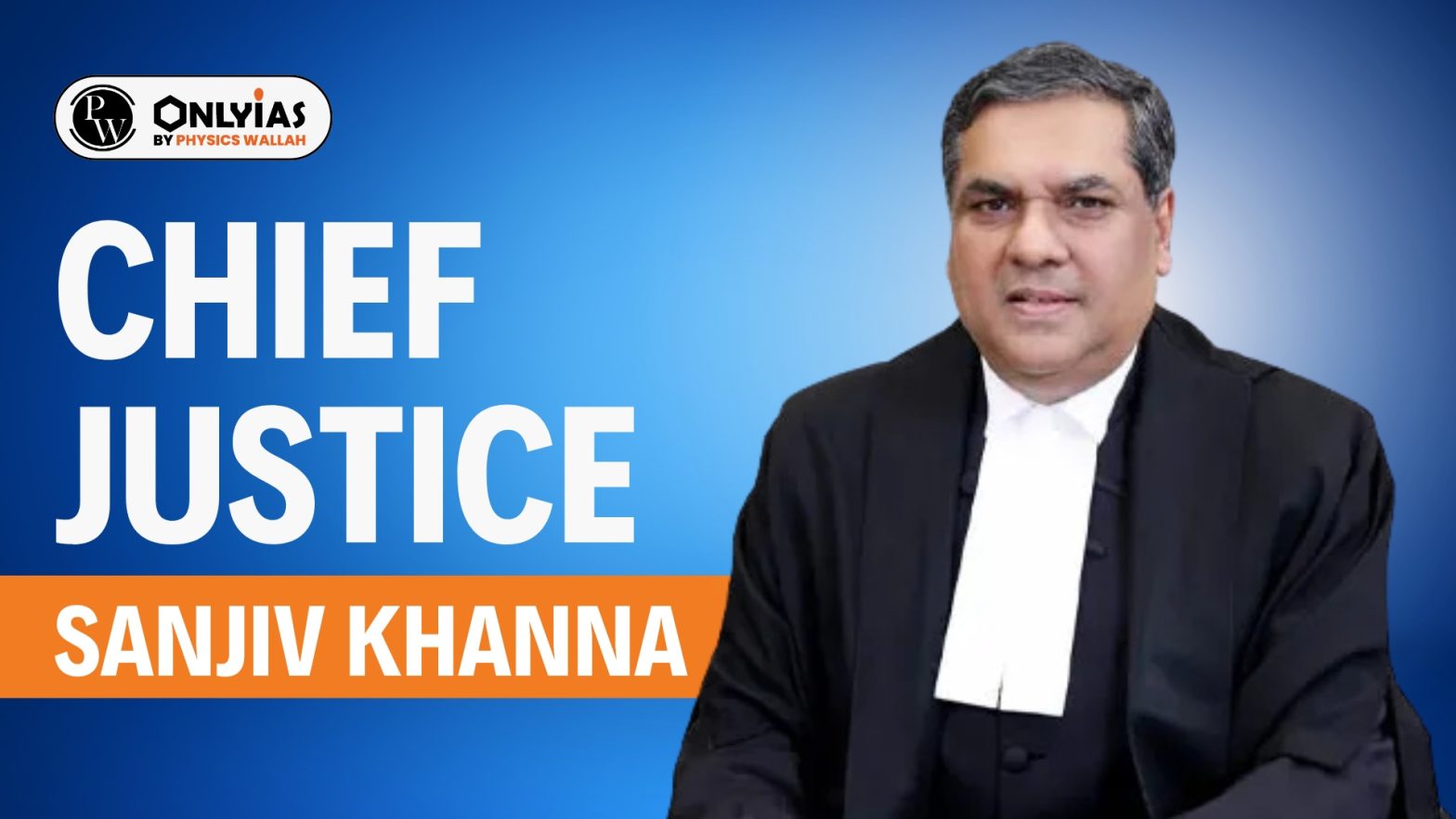Chief Justice of India: Justice Sanjiv Khanna has been appointed as the 51st Chief Justice of India (CJI) by taking oath as the 51st Chief Justice of India on November 11, 2024.

Chief Justice of India: Justice Sanjiv Khanna has been appointed as the 51st Chief Justice of India (CJI) by taking oath as the 51st Chief Justice of India on November 11, 2024. He succeeds Justice D.Y. Chandrachud and will serve a tenure of 183 days until his retirement. The CJI plays a pivotal role in the Indian judiciary, overseeing the Supreme Court and ensuring the smooth functioning of the judicial system. Keep on reading to more about the Chief Justice of India here.
Justice Sanjiv Khanna is set to serve as 51st CJI for a short yet impactful period of 183 days, succeeding Justice D.Y. Chandrachud. The oath of office was administered by President Droupadi Murmu in a ceremony at the Rashtrapati Bhavan. Prime Minister Narendra Modi, Rajnath Singh, Vice President Jagdeep Dhankar, and Former CJI D.Y. Chandrachud were also present in the ceremony.
Known for his balanced judgments and deep understanding of constitutional law, his tenure is expected to focus on significant cases and judicial reforms. His role as the CJI also includes facilitating smooth coordination among the judiciary, the executive, and the legislative branches of government. Here’s what you should know about the 51st Chief Justice of India:

The Chief Justice of India (CJI) holds the highest judicial position in the country and is responsible for upholding the rule of law and ensuring the efficient functioning of the Supreme Court of India. This section provides an overview of the appointment process, eligibility criteria, oath of office, and the duties and powers associated with the role of the CJI.
The President of India appoints the Chief Justice of India. The appointment generally follows the seniority principle and includes recommendations from the outgoing CJI. Here are the key points in the appointment process:
Also Read: Who was the First Female Chief Justice of India?
To qualify as the Chief Justice of India, a candidate must meet specific criteria. These requirements ensure that the individual has the necessary judicial experience and commitment to uphold the Constitution.
Upon appointment, the Chief Justice of India takes an oath administered by the President of India. This oath underscores the CJI’s commitment to uphold the Constitution and the responsibilities of the judicial office.
The Chief Justice of India has extensive responsibilities that impact the judiciary and constitutional governance. These duties encompass judicial administration, case allocation, and significant influence over judicial appointments.
These roles and responsibilities make the CJI an influential figure in the Indian judiciary, ensuring both the integrity of legal processes and the safeguarding of constitutional rights.
Sign up for the PWOnlyIAS Online Course by Physics Wallah and start your journey to IAS success today!
UPSC Exam Related Articles
UPSC Prelims 2025 Exam
UPSC 2025 Notification
UPSC Preparation 2025
UPSC Eligibility 2025
UPSC Exam Pattern
UPSC Syllabus
The President of India appoints the Chief Justice based on seniority and the outgoing CJI’s recommendation.
The 51st Chief Justice of India will serve a six-month term until May 01, 2025.
A CJI serves until the age of 65, though the actual duration varies based on their age at the time of appointment.
Justice Sanjiv Khanna is the 51st Chief Justice, succeeding Former CJI D.Y. Chandrachud.
Leila Seth was the First Woman chief justice of the High Court of India.
<div class="new-fform">
</div>